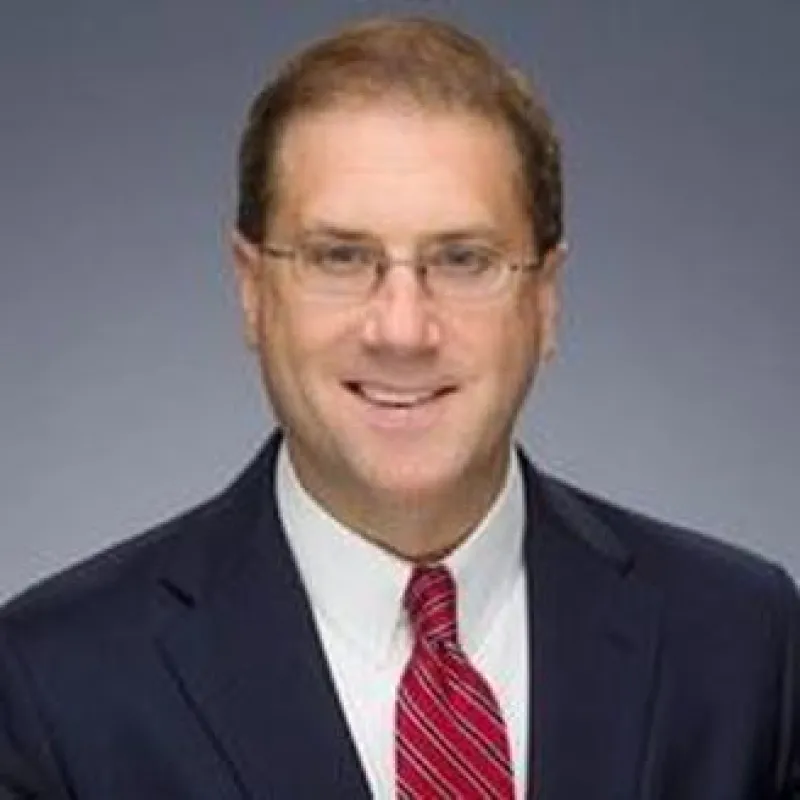How the ACA’s “Enhanced Premium Subsidies” May Impact Health Savings Accounts and COBRA Coverage

Each year, Congress returns from their August recess the day after Labor Day, and each year, Congressional Leaders are typically faced with a decision to make: (1) Pass a spending bill that funds the Federal Government for the following Fiscal Year or (2) Refuse to pass funding legislation and shut down the Federal Government. The deadline to make this decision each year is September 30th, the day before the U.S. Fiscal year begins on October 1.
This year (2025), Congressional Leaders failed to agree to a spending bill before the September 30th deadline. On one side of the aisle, Republican Leaders asked Congressional Democrats to agree to a short-term spending bill with no other policy changes included in the underlying bill. Democratic Leaders, however, demanded that Republicans agree to a spending bill that also:
- repealed the Medicaid changes included in the recently enacted “One Big Beautiful Bill” (OBBB) and
- extended the Affordable Care Act’s (ACA’s) “enhanced premium subsidies” past December 31, 2025.
As of the date of this blog’s publication, the Federal Government remains shutdown, but Congressional Leaders and the White House are currently discussing what the contours of a spending bill might look like, which leads us to our first question:
1. Will a Forthcoming Spending Bill Include an Extension of the ACA’s “Enhanced Premium Subsidies”?
In 2021, Congress passed, and President Biden signed, legislation that (1) increased the generosity of the Affordable Care Act’s (ACA’s) premium subsidies, and also, (2) allowed individuals at any income level to access a subsidy. However, the legislation included an expiration date of December 31, 2025 on these “enhancements,” which means, the current Congress has a decision to make by the end of this year:
- Option #1 – Extend the enhanced premium subsidies in their current form.
- Option #2 – Extend the enhancements in a different form.
- Option #3 – Allow the enhancements to expire entirely.
It’s unlikely that Republicans will agree to option #1, and it may be difficult for Republicans to agree to option #3, considering that mid-term elections are right around the corner and studies are showing premium spikes in the “individual” market and the loss of health coverage for millions.
So, there is the potential that this Congress will ultimately agree on option #2. But, for option #2 to happen, Congressional Republicans could demand that Congressional Democrats agree to enact Republican health care policies in exchange for some form of an extension – effectively a “horse trade” – which leads us to our second question :
2. If Republicans and Democrats Agree to an Extension in Some Form, Will HSAs Be a Part of the Deal?
Health Savings Accounts (HSAs) – and improving and expanding the HSA rules – has been a long-standing health care policy goal for Republicans. Case-in-point, Republicans included in the recently enacted “One Big Beautiful Bill” (OBBB) two very important changes to the current HSA rules:
- Permanent Telehealth/HDHP Exemption – By making permanent this COVID-era exemption, High-Deductible Health Plans (HDHPs) are allowed to pay for Telehealth services before the HDHP’s deductible is met.
- Direct Primary Care Allowances – HDHP-planholders can access Direct Primary Care services without adversely impacting the planholder’s HSA eligibility. Direct Primary Care monthly fees (up to $150 for singles and $350 for families) can also be paid with tax-free dollars from an HSA (see more on these changes in my recent blog post discussing the OBBB, which you can find here).
Interestingly though, Republicans wanted more. That is, Republicans – and in particular House Republicans – included in an early iteration of the OBBB a number of HSA policy changes that were ultimately dropped from the final version of the bill. They included:
- Allowing HDHP-planholders to maintain their HSA-eligibility if also utilizing discounted health care services at an on-site clinic.
- Allowing tax-free HSA dollars to be used to pay for gym memberships and instructional physical activity.
- Allowing individuals making less than $75,000 (or $150,000 for families) to contribute an additional $4,300 (or $8,550 for families) each year to their HSA.
- Allowing Medicare-eligible employees to contribute to an HSA and allowing HSA contributions to be made even if a spouse is covered by a Flexible Spending Account (FSA).
I enumerate these HSA policy changes here because I believe that House Republicans will demand that – as a “horse trade” – Congressional Democrats agree to enacting these HSA policy changes along with any proposal to extend the enhanced premium subsidies in some form.
If added to the law through a forthcoming bill to fund the Federal Government, these Republican health care policies will – similar to the HSA changes included in the OBBB – be a big deal for employers that are looking to increase their HDHP-HSA plan offerings to their employees. Why?
- First, there are tools that provide decision support and care navigation capabilities that employers can use to help employees newly enrolled in HDHPs (and also existing HDHP-planholders) access medical services and providers in a way that has the potential to lower both the employee’s and employer’s cost.
- Second, these changes may perhaps help make HDHP-HSA plans more attractive to employees due to the increased flexibility in accessing certain medical services while remaining eligible to contribute to their HSA, and also, the ability to pay for certain services with tax-free HSA dollars.
It remains unclear whether we will see an extension of the enhanced premium subsidies in some form in any forthcoming spending bill. And, even if a compromise proposal does surface, it is unclear whether Republicans will be able to “horse trade” for these HSA policy changes. Regardless, this tells us how the ACA’s premium subsidies and HSAs are interestingly related. Let’s pivot to the next question:
3. How Is Extending – or Not Extending – the Enhanced Premium Subsidies Related to COBRA?
This question on COBRA coverage focuses on behavior, and the choices of employees or their dependents who are eligible for COBRA continuation coverage on account of such things as termination, reduction in hours, or divorce. Here are two scenarios:
- COBRA Election: When an employee or a dependent elects COBRA coverage under the health plan they were previously covered by, the employee/dependent must pay the full cost of the health coverage, plus 2%.
- ACA Enrollment: If an employee or a dependent chooses to enroll in an “individual” market plan sold through an ACA Exchange, this employee or dependent will be eligible for an ACA premium subsidy (assuming this employee/dependent is not eligible for health care coverage elsewhere, like another employer plan or Medicaid). The existing enhanced premium subsidies cover up to 80% of the premium cost for a majority of ACA Exchange-policyholders. In some cases, the enhanced subsidies may cover 90% – or even 100% – of the premium cost depending on the income of the employee/dependent.
Based on the above scenarios, if the enhanced premium subsidies are not extended, there are two outcomes that could potentially lead to an increase in COBRA elections. Here’s a look at those two outcomes and how employees/dependents may respond:
- Increased Cost: If the enhanced subsidies is reduced because Congress does not extend these enhancements, this will increase the cost of the underlying ACA Exchange plan for the employee/dependent.
- How Employees/Dependents May Respond: This increased cost to the ACA plan could convince an employee/dependent to elect COBRA coverage, even though the employee/dependent is paying 102% of the premiums. Here, the employee/dependent may like their former employer’s health plan better than an ACA Exchange plan because, for example, they may want to keep their doctors, or they want to remain in a lower deductible plan. And, if the financial incentive to choose a subsidized Exchange plan instead of COBRA is reduced, this may change the choice of the employee/dependent when it comes to electing health coverage that best fits their needs from both a coverage as well as financial perspective.
- Loss of Eligibility: Another consideration here is that if the enhanced premium subsidies are not extended, then an employee or dependent with income above 400% of the Federal Poverty Level (FPL) will no longer be eligible for a premium subsidy. For these employees/dependents, they would be required to pay 100% of the cost of their ACA Exchange plan.
- How Employees/Dependents May Respond: Here, if an employee/dependent is choosing between paying (1) 100% of the cost of an ACA plan or (2) 102% of the cost of their former employer’s plan, their behavioral response may be to elect COBRA coverage and not even consider the ACA plan.
Again, it is too early to tell whether any forthcoming spending bill will include an extension of the ACA’s enhanced premium subsidies. But, if there is no extension, it seems reasonable to conclude that employers may see an uptick in elections for COBRA, which is an interesting dynamic that illustrates how the ACA’s premium subsidies and COBRA coverage are related. And this leads us to the final question:
4. Will We See HSA-Related Policy Changes Outside of the Debate Over the Extension of the ACA’s Enhanced Premium Subsidies?
The answer here really comes down to politics. While HSA policy changes are strongly supported by Republicans, Democrats are not as enthusiastic about making changes to improve and/or expand the HSA rules. So, if there is no extension of the enhanced premium subsidies, we may only see HSA policy changes happening if there is another bi-partisan health care package that surfaces between now and May 31, 2026.
Is there a chance for a bi-partisan health care package to surface? Answer: Maybe.
We could see a health care package that is anchored by Pharmacy Benefit Manager (PBM) reforms, which could include things like increased disclosure of PBM payment practices, banning spread pricing, and requiring 100% rebate pass-through. Bolted onto this package could also be legislation that would codify the Hospital and Transparency in Coverage regulations, strengthen enforcement for compliance with the Hospital and Transparency in Coverage requirements, plus mandate that owners of the provider networks (e.g., insurance carrier-owned TPAs) give plan sponsors, plan administrators, or a plan’s Business Associates access to a complete and accurate set of health claims data. All of these policy changes enjoy bi-partisan support.
What To Watch Out For
The ensuing government shut down will end at some point. And that point will be marked by the enactment of a spending bill to fund the Federal Government which may – or may not – include HSA policy changes and other health care policy changes noted here. It is advisable for employers and their employees to stay informed about future policy changes. Employers can also choose to work with a benefits administrator who can offer guidance on what you should expect if and when the law changes.



